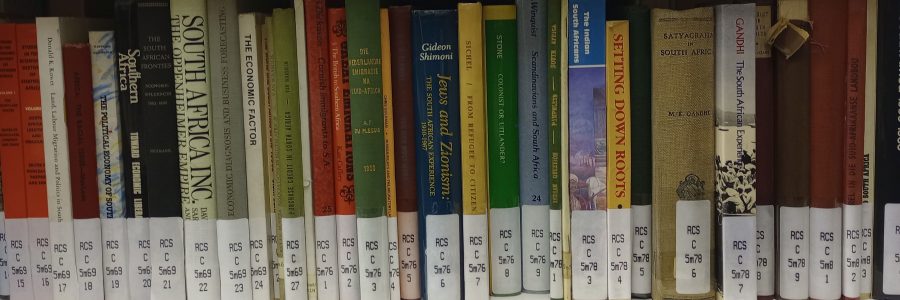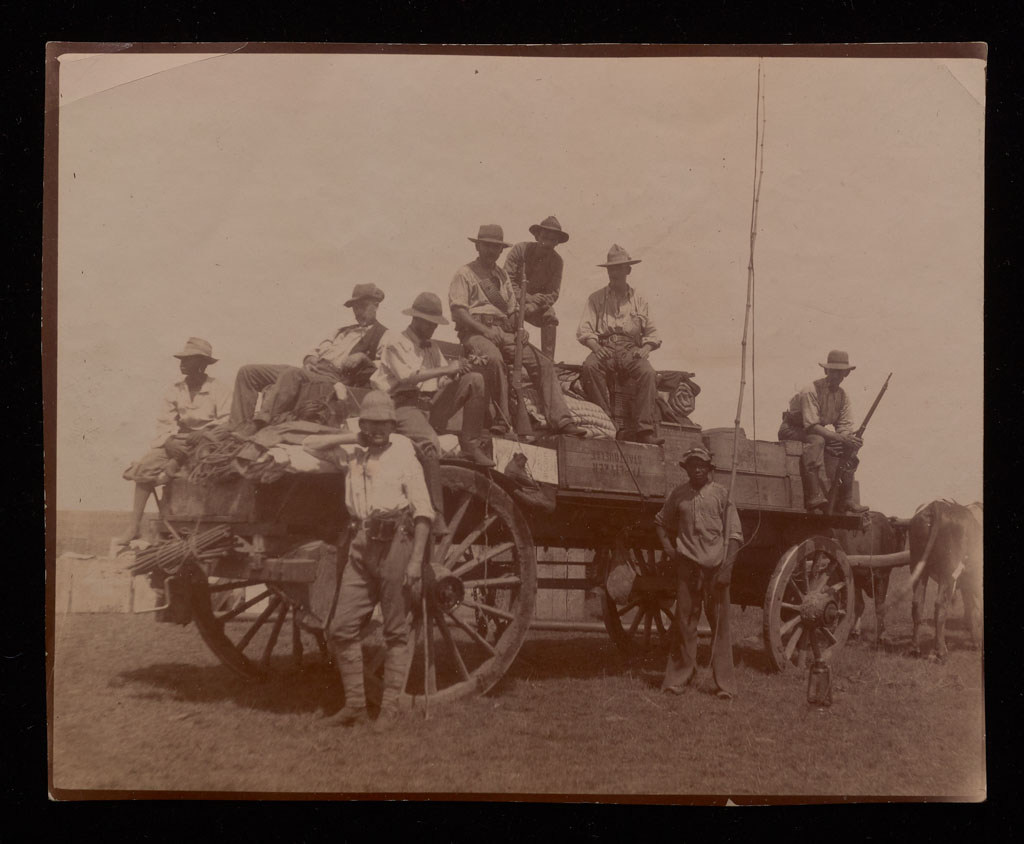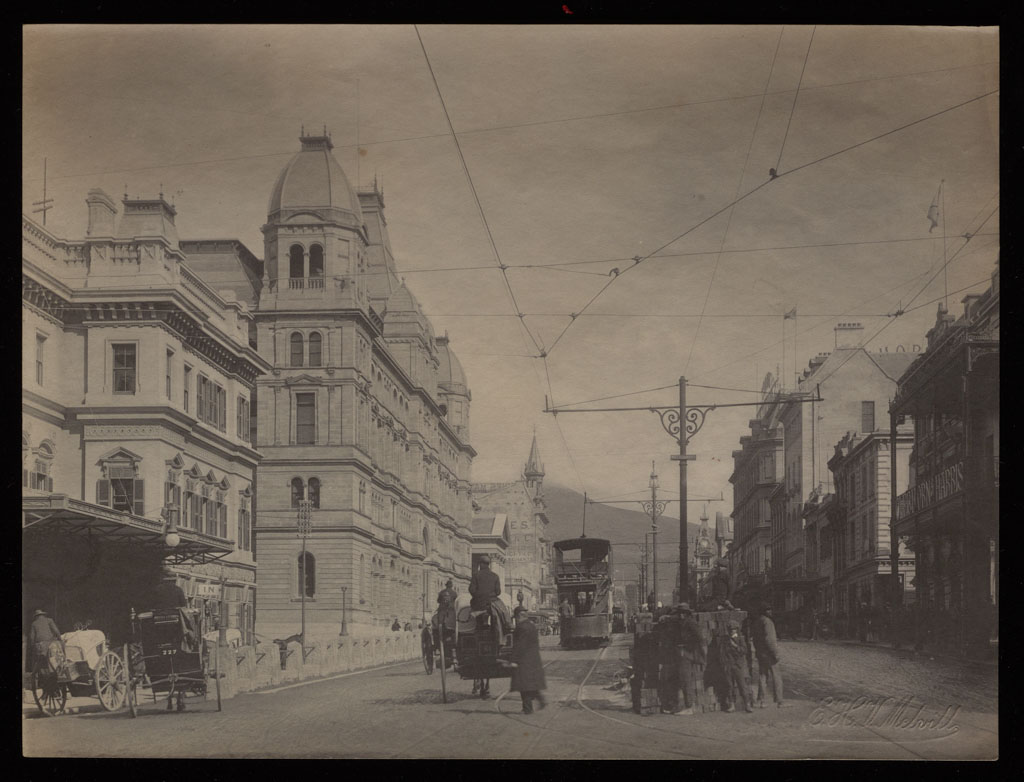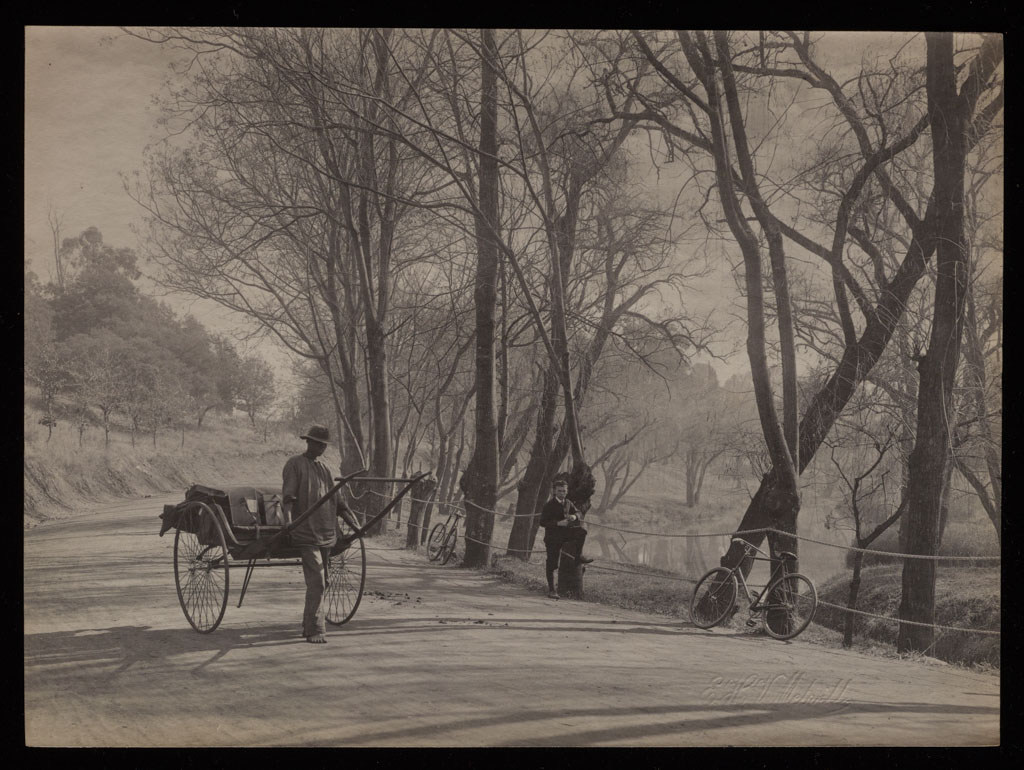
Shared digital curation of southern African collections
Creating new connections: shared digital curation of the RCS southern African collections at Cambridge University Library
A two-year project is underway at Cambridge University Library to explore a shared approach to the digital curation of the holdings of the Royal Commonwealth Society (RCS) collection relating to southern Africa. The RCS is a vast repository of resources documenting the written and visual heritage of the Commonwealth and Britain’s former colonial territories.
The material relating to southern Africa encompasses personal papers, manuscripts, diaries, drawings and watercolours, photographs, pamphlets and ephemera, newspapers, journals, maps, cartoons, official government publications, directories and monographs. It is an unquestionably diverse range of material, rich in research potential. The collection, however, is intrinsically problematic in that it represents for the most part the perspective of the coloniser and settler. Similarly, with the exception of a small amount of digitised material, the bulk of the RCS holdings relating to southern Africa are accessible only to those able to physically visit Cambridge. The material is effectively set apart from the communities which it documents.

This shared digital curation project funded by Carnegie Corporation of New York is a first step in opening up the collection to communities and researchers in southern Africa, where the material originated in the first place, and around the world. The project’s aims are:
- to develop and promote engagement with groups or individuals in or closely related to southern Africa, whose local and personal knowledge will enhance understanding and interpretation of the RCS collections;
- to draw on these relationships to develop a digital collection relating to southern Africa hosted via Cambridge University Digital Library (CUDL), an established platform for sharing images and metadata, freely available to anyone with an internet connection;
- to carry out a concurrent programme of conservation, through surveying, assessment and targeted treatment, to secure the long-term preservation of this material.
It is crucial to move beyond simply housing this material at the UL and making it physically accessible to those able to visit Cambridge. A more ambitious approach is needed to shape the curation of this material, how it is described and presented, and how it is interpreted and interrogated. Shared curation is only possible with involvement from individuals or communities represented in the RCS collection relating to southern Africa. A major strand of this project, therefore, is focusing on creating new connections with southern African and diasporic communities to inform in particular the selection of material for digitisation and the prioritisation of workflows.
With over 300,000 printed items and 800 archive collections, where to start? The first phase of the project has focused on surveying the material relating to southern Africa and starting conversations with groups and individuals with an interest in southern Africa. An initial tranche of digitisation, focused on photographic collections mostly of 19th century, pre-Union South Africa, was completed earlier this year. The photographs provide a visual representation of the country now known as South Africa from a colonial or settler perspective and are indicative of what has been termed ‘the colonial gaze’.

Another collection item identified as a priority for digitisation is the report and minutes of evidence of the South African Native Affairs Commission (SANAC). The commission, chaired by Sir Godfrey Lagden (1851-1934), later a vice-president of the Royal Colonial Institute (an earlier iteration of the RCS), took evidence from settlers and Africans across the four colonies (Cape, Transvaal, Natal and Orange River) and across the territories then known as Rhodesia (Zimbabwe), Bechuanaland (Botswana) and Basutoland (Lesotho) between 1903 and 1905. The hefty volumes of evidence give some access to the African voice which is so often silent or simply absent in official documents. The report, published in February 1905, advocated for, amongst other things, territorial and political separation along racial grounds, the seeds of the policy of segregation which defined South Africa, and southern Africa more generally, for much of the 20th century. The RCS collection holds Lagden’s own copy of the SANAC volumes.
Updates on the project will appear on this blog throughout 2023. For further details on the project, to get involved or to learn more about the RCS material relating to southern Africa please contact rcs@lib.cam.ac.uk.


